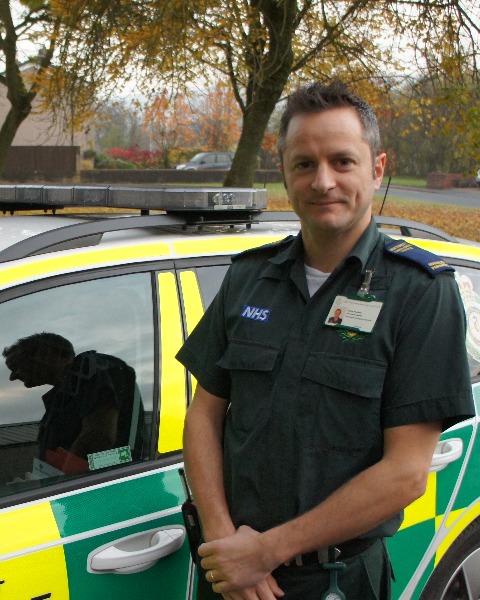Main Conference
Health and Wellness
Managing Traumatic Stress to build a mentally resilient workforce
Friday, September 22, 2023
1:00 PM - 2:00 PM CT
Location: 348/349
CE: 1
Sponsored By


Vincent J. Romano, HCPC reg Paramedic (he/him/his)
Consultant Paramedic - Education
North West Ambulance Service
Cumbria, England
Speaker(s)
Disclosure(s):
Vincent J. Romano, HCPC reg Paramedic, N/A: No financial relationships to disclose
The nature of work Emergency Medical Services (EMS) responders face day to day is widely acknowledged to be stressful and has the potential to affect an individual’s mental health (Anwar et al, 2019). This persistent occupational stress can result in a variety of mental health conditions, such as depression, anxiety, Post Traumatic Stress Disorder (PTSD) and can be a factor in suicide (Kings College London, 2020). It is imperative that EMS organisational leaders not only understand the risks but are well equipped to support responders at the earliest opportunity in line with best practice. The wellbeing of responders has a direct correlation with the quality of care they deliver to patients (Meadley et al, 2020).
There is a wide variation of support systems being utilised across different EMS providers. Unfortunately some are antiquated and no longer follow the latest evidence whilst some providers negate their moral and legal responsibility to support their responders. The use of an evidenced based peer support system as opposed to a managerial led programme will encourage individuals to access support independently, provide a cost-effective solution and should be relatively easy to implement (Lawn et al, 2020. Smith et al, 2022).
There is a wide variation of support systems being utilised across different EMS providers. Unfortunately some are antiquated and no longer follow the latest evidence whilst some providers negate their moral and legal responsibility to support their responders. The use of an evidenced based peer support system as opposed to a managerial led programme will encourage individuals to access support independently, provide a cost-effective solution and should be relatively easy to implement (Lawn et al, 2020. Smith et al, 2022).
Learning Objectives:
- Describe the psychological effects of type 1 and type 2 trauma as well as moral injury, recognise the early signs of mental health deterioration and react appropriately.
- Define positive effects of having a robust peer support programme in place and understand how to implement such a tool, including supporting and equipping first-line managers/leaders.
- Demonstrate how to approach support in a holistic manner and be able to identify the elements of support which should be prioritised.
